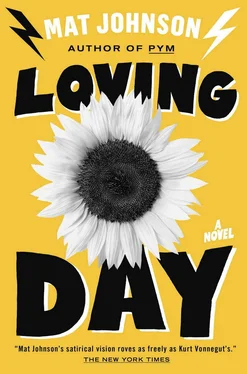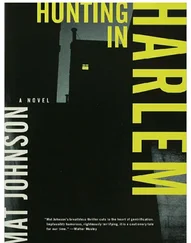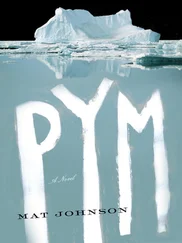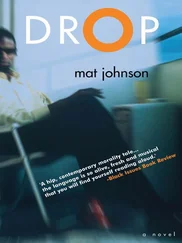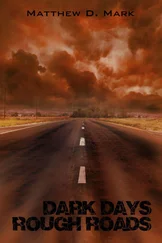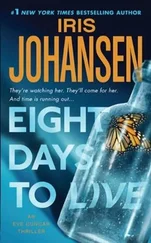When we finally talked, she said, “No, make the check out to me. That’s what my mother wants.” I said okay, and hung up. It really was okay. No mother wants the check made out to you. I didn’t send it. I didn’t spend it either. I was too chickenshit scared to. Her next call three weeks later began, “Where the fuck is the money?” It was the last sentence she said to me. In response I said, “I didn’t send it. And I’m not going to send it either.” And then there was nothing but silence.
So much silence. I could hear the radio on in the background, Hot Hits 98! WCAU FM. I knew she was still on the line. It was open audio territory, meant for me to step in and defend myself, to uphold my position. But I stayed mute. I was not going to say anything else. I was not going to call her a liar. I was going to let the silence hold, because I knew that if I could endure it, this silence, this final call, then she would disappear. Because I disappeared. Right there, I was holding the phone, but in my head, I was gone.
In the silence, I first understood you could do this fully, that you could just vanish. Or rather: I could do this. I could do this my whole life, and would, because the only thing it took was not being a good person. Now I knew: I wasn’t a good person. I wasn’t going to grow up to be strong. I was going to be a weak man who could do something horrible, unspeakable, shameful, and just vanish. Disappearing, like when my mom was in the hospital after her stroke and I stopped visiting because it hurt less not being there, seeing her there, unable to do more than witness. So I vanished. And then Mom was gone and I never had to go back anymore. After three minutes, three of the longest minutes of my life, three minutes of hearing ads for Krass Bros. menswear and Robbins Eighth and Walnut at her end of the phone, of hearing her breathing, hours in feeling but minutes counted on the red digital numbers of my father’s alarm clock, she finally hung up. Cindy was gone. It was over. The conflict was erased, and now I had the money, and the only price was my delusion that I was worth loving. I spent the money on the next Air Jordans. All white and lizard skinned. And pizza, I think. And forties of Red Bull.
—
“You knew my daughter,” Irv Karp says to me, eighteen years later. He’s Jewish and I can hear in his question the Torah’s sense of “to know.”
“I barely knew her. I don’t know her,” I tell him, and I look frantically around the diner we’re in, at the people in the other booths and tables, searching for Cindy’s face staring at me. Preparing for the hate on that face. The anger from the last phone call undiminished.
That’s how I’ll recognize Cindy today: the accusation in her expression.
“You’re right, you didn’t really know her. And you never will. She’s dead.” He takes a sip of his coffee, then lets me carry the weight of the statement. I fumble my condolences but he still takes them. Outside, standing on the sidewalk, the girl smokes a cigarette. “She’s dead. Seven years now. Stop apologizing, that part wasn’t your fault.
“She had her demons. She fought them for a while. Sometimes she beat them. Mostly though, she followed them to hell. And seven years she’s been gone. She was my angel, but I’m under no illusions that she was an angel to the world. A man’s daughter is his heart. Just with feet, walking out in the world. A guy I went to grad school with, he said that. He turned out to be a gay, didn’t matter: for him and his little girl it was the same way. You’ll find that out now. This one, she takes after you anyway.”
“You don’t know me.”
“But I know me. I know my wife, may she rest. And I knew my daughter better than she did herself. And this one, she’s not like my people. It was clear when she was little; it’s clearer now. You get a seed, doesn’t matter what kind of soil or light or water it gets, it’s going to grow into what it is,” Mr. Karp tells me. I want to know what this old white man means by “my people,” but it’s the way he says the word seed that hits me. She’s looking through the window at us. At me. She holds one arm around her waist, the other leans its elbow on her hand as she bends the cigarette to her mouth, the way my mother used to do when she was thinking.
“Look at her. She’s like three feet taller than me. She’s like a giraffe. A cute one, I love her, but you get me. You wouldn’t believe how much the girl eats. That hair: don’t let it fool you. It’s straightened now. But usually, it’s like lamb’s wool.” He points up at my own hair, smiling. Then looks closer at my straight strands, and sobers. “Still my bubi’s was the same way, so who knows which side that came from. But Tal’s yours. She’s very artistic. Not academic, this one. Always about the art, the dancing, the whole tortured artist thing. You’ll get it. I been Googling you. Almost two years now, I been following you.”
“So why today? Why didn’t anybody tell me before? All this time, if you had my name, why not contact me?” I don’t want to sound mad. I don’t want him to get up from the table, for the girl outside, now on the cell phone, to fade away from me.
“My daughter.” Irv Karp shrugs. “Promises were made. And I was particular about who I would let in my granddaughter’s life, no offense. But I researched you, I saw who you became. And I saw on the Internet you’d be in town, at this little cartoon thing.
“This girl, I can’t handle her anymore. And Tal’s like you. She’s your people.”
—
This girl looks more like my mother’s daughter than mine. She’s even darker than I am. I’m proud: I knew I had more black in me than my own appearance implies. I’m jealous: that melanin should have been mine. The genes that gave me the palest of tans on her looks like a two-week Caribbean vacation. The African kink of her hair is chemically treated and combed straight enough to be European curly. She’s been passing for white and not even knowing it.
“So, I’m a black. That’s just fucking great. A black. That’s just what I need right now.”
“You’re not ‘a black.’ You’re black. It’s a good thing, nowadays. You can be president.” I grin for her. Her smile back is quick and fraudulent. She’s trying to act composed and mature, and she’s not old enough to know how to pull off the illusion like the rest of us.
“Jesus, I thought you would be Israeli or something. I hate rap music,” she says, then looks off. “You know, I was the best dancer at Kadima, since like third grade. Guess that’s explained.”
“I can’t dance, sorry.”
“Maybe it skips a generation. God, school. He told you to tell me to go back to school, didn’t he? He told you to tell me to get back in high school, finish up and go to a good college. That’s why he’s doing this to me, because it’s easy to get into college for blacks. Don’t they get scholarships or something? That’s what this is about.”
My daughter is a racist, I think. I adjust that to, My daughter is mildly racist. My daughter is casually racist, I settle on. She’s casually racist. “You dropped out of high school?”
“I’m an artist too. I’m a dancer. I’m going to dance school anyway, so I just need my GED and an audition piece. Irv doesn’t understand that. I’m going nuts in his apartment. You’ve met Irv; you have to see what he’s like. I’m going to graduate, like, any minute. I’m almost eighteen. I want to get out of the house now. Tell him to let me go, and I’ll leave you alone. You can go back to not being a dad.” I want to protest this, but my mind doesn’t have the words my mouth needs, so I choke on nothing for a bit till I raise my water glass.
“I’ll take the year off, backpack in Europe, take some classes, just build my repertoire,” she keeps going. “That’s what matters. Ol’ Irv doesn’t understand that. I’m sure as hell not going back to Kadima Hebrew Academy. Look at you. Look at me. I don’t even know if I’m even Jewish anymore.”
Читать дальше
